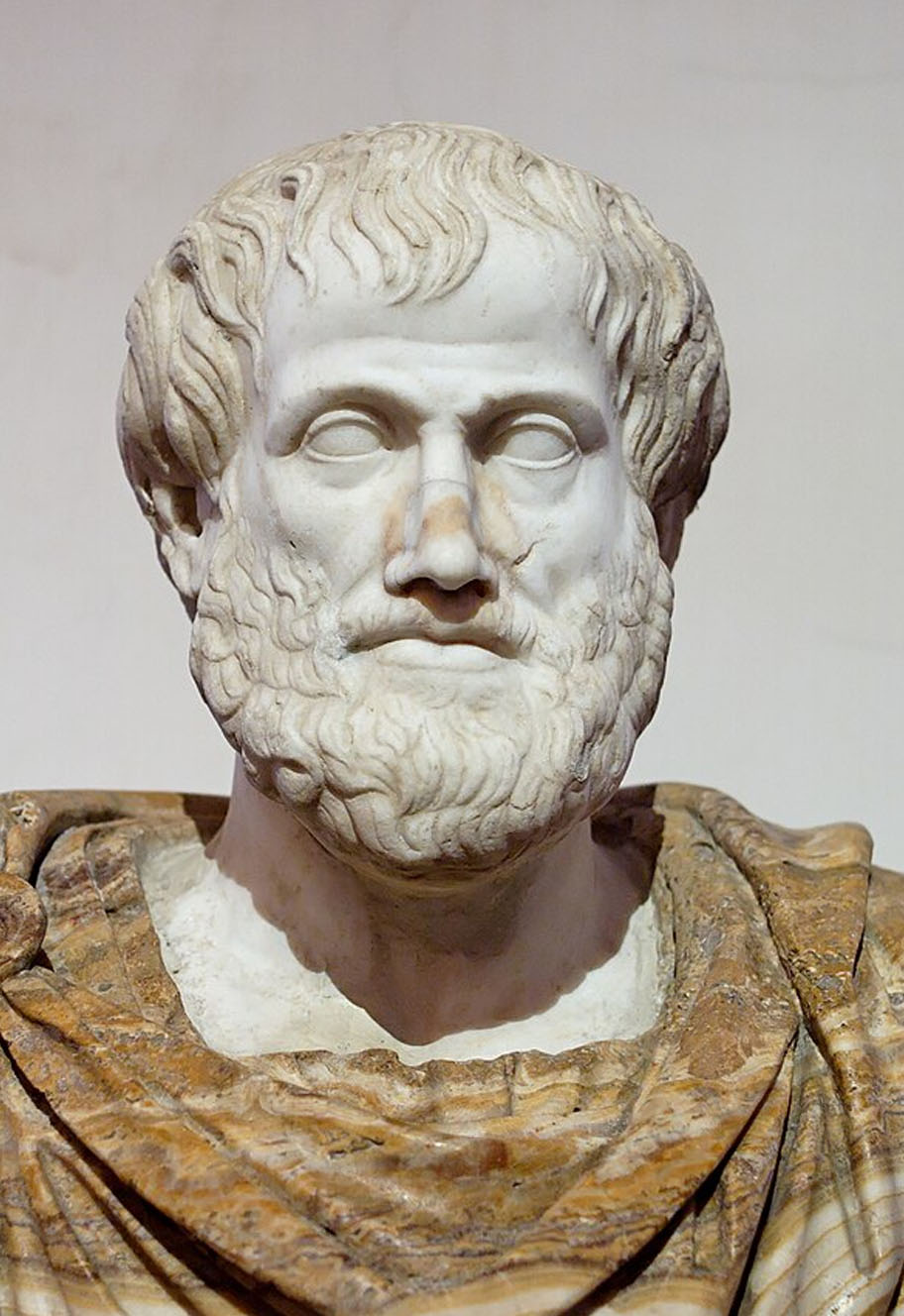Aristotle
Born:
384 BCE
Died:
322 BCE
Aristotle was a Greek philosopher and polymath who made significant contributions to various fields, including philosophy, ethics, politics, metaphysics, biology, and many others. He was a student of Plato and a tutor to Alexander the Great. Aristotle's works have had a profound and lasting influence on Western thought. Here are key aspects of Aristotle's life and contributions:
Early Life and Education: Aristotle was born in 384 BCE in Stagira, a Greek colony in the northern part of what is now Greece. At the age of 17, he moved to Athens to study at Plato's Academy, where he remained for 20 years, absorbing Plato's teachings while developing his own ideas.
Tutor to Alexander the Great: Aristotle became the tutor to Alexander, the future conqueror and king when Alexander was 13 years old. During this time, Aristotle significantly impacted Alexander's education, fostering an interest in philosophy, science, and literature.
Philosophy:
- Metaphysics: Aristotle's work in metaphysics explores the nature of reality, being, and existence. He discussed the concepts of substance and causality.
- Epistemology: Aristotle made contributions to the study of knowledge, emphasising empirical observation and categorisation of phenomena.
- Ethics: In his Nicomachean Ethics and Eudemian Ethics, Aristotle explored the nature of virtue, ethics, and the pursuit of happiness. He introduced the concept of the "golden mean" as a guide to ethical behaviour.
- Politics: Aristotle's Politics is a seminal work on political philosophy, examining the nature of the state, citizenship, and the best forms of government. He categorised different types of governments and discussed the idea of the "polis" (city-state).
Biology and Natural Sciences: Aristotle made significant contributions to biology, zoology, and natural history. His work "Historia Animalium" documented his observations and classifications of various species. He developed a classification system for living organisms, categorising them based on their characteristics, and introduced the concept of a "scala naturae" or a "great chain of being."
Poetics: Aristotle's Poetics is a foundational work on literary theory, focusing on the principles of drama and poetry. He analysed the structure of tragedies and the elements that make them effective.
Legacy: Aristotle's works were preserved and studied throughout the Middle Ages, contributing significantly to medieval philosophy and theology. His emphasis on empirical observation and systematic classification laid the groundwork for the scientific method. Aristotle's ideas profoundly impacted later philosophers, including Thomas Aquinas and other Scholastics.
Death: Aristotle died in 322 BCE in Euboea, Greece, a year after leaving Athens following the death of Alexander the Great.

Quick Facts
- Aristotle's comprehensive and systematic approach to knowledge, emphasis on empirical observation, and contributions to various disciplines have solidified his place as one of the most influential figures in the history of Western philosophy and science.
Further Reading
Art &
Architecture
Ancient Greek art and architecture, with its harmonious proportions and timeless elegance, continue to inspire awe and admiration millennia later.
Discover
Greek Mythology & Mythical Characters
Greek mythology, a rich tapestry of gods, heroes, and mythical creatures, captivates the imagination with its tales of love, betrayal, and epic adventures that delve into the depths of the human psyche.
Discover
Ancient Greek History
Ancient Greek history, marked by remarkable achievements in democracy, philosophy, and warfare, shaped the foundation of Western civilization, leaving an indelible legacy of innovation and cultural influence that continues to resonate to this day.
Discover
Ancient Greek Olympics
The ancient Greek Olympics, held in Olympia every four years, celebrated athleticism, unity, and cultural pride, serving as a testament to the enduring spirit of competition and excellence that transcends time and borders.
Discover
Ancient Greek Wars
Ancient Greek wars, such as the Persian Wars and the Peloponnesian War, were pivotal conflicts that shaped the course of history, highlighting the struggle for power, independence, and the clash of civilizations in the ancient Mediterranean world.
Discover
Ancient Greek Culture and Society
Ancient Greek culture and society, characterized by its emphasis on art, philosophy, and civic engagement, fostered a vibrant intellectual and social landscape where innovation flourished, democracy thrived, and the pursuit of knowledge and excellence was celebrated as fundamental values of civilized life.
Discover